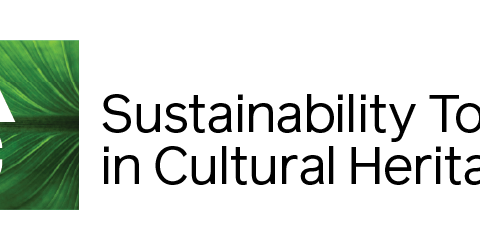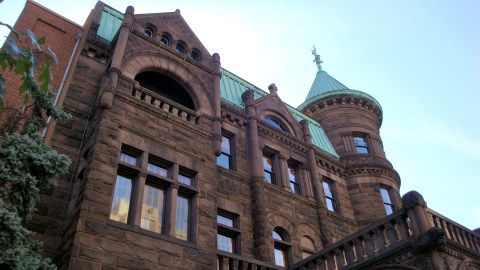Today the Alliance is launching a survey asking for input on what museum professionals think should be included in the definition of direct care. Sally Yerkovich, Chair of the AAM Direct Care Task Force, explains why this is a pressing issue for the future of museums, and shares how you can weigh in.
As we launch this field-wide survey on direct care of collections, it’s interesting to look back at the forecasting exercise that the Center for the Future of Museums conducted on behalf of Seton Hall University’s Institute of Museum Ethics several years ago. That exercise asked 75 oracles – emerging museum professionals as well as senior experts, educators, registrars, public relations staff, fundraisers and directors as well as professionals from related fields like librarians and archivists, attorneys, futurists, journalists, and ethicists – to help us think about the ethical issues that would be of increasing importance to museums in the next 15 to 25 years. The oracles identified seven pressing issues and it’s no surprise that the use of funds from the sale of deaccessioned objects was among them.
The oracles identified a number of factors that would have an impact upon how the field views both deaccessioning and the use of funds from the sale of deaccessioned items. They saw the economic crisis increasing the pressure on museums to monetize their collections in some way. Seventy-six per cent of the oracles felt that the current standards regarding the use of funds would fall short of the kind of guidance the field needs. Generally, their comments focused upon the impact of the increasing financial pressures, the need for changing current standards, and the responsibility of defining direct care.
The oracles predicted that museums would continue to experience financial pressures well into the future. One commented, “The cost of maintaining the world’s permanent collections will no longer be tenable in light of pressing global issues – environmental, social, economic, etc. [The costs of upholding] professional standards of any kind will have to be financed as they can, in order to care for collections.”
Another oracle spoke to the influence of business practices on museums and said, “All other areas of museums have become increasingly monetized and influenced by corporate metrics, and I expect collections deaccessioning will as well. Museums will be forced to balance their fiduciary responsibility to the collections they hold against their ethical obligation to not treat their collections as financial assets.”
Some oracles called for changing the standards to more realistically meet current needs.
“The current ethical standards are too constraining in times of crisis….It is foolish to bind directors to ethical standards that cannot possibly be met if the institution is to continue its existence. There are cases where museums could be saved were they to sell just a few of their pieces. This should be permitted if they are sold to another museum or non-profit institution that will commit to sharing the piece with the public.”
“AAM’s standard about the use of funding for deaccessioning is stuck in the 20th century. Pretty soon, we’ll have tons of stuff but no museums left to reach audiences. Successful museums of the 21st century focus on reaching people first, and amassing collections second. AAM should revise its stance to allow museums to use funds from deaccessioning towards a broader range of activities to encourage organizational health.”
Many of the commentators noted the need for a definition of direct care, especially if direct care continues to be identified by the standards as one of the only two allowable uses for funds resulting from the sale of deaccessioned materials. One of the oracles stated, “In our zeal to avoid making rules, or in the inclination to make ‘one size fits all’ rules for the field, we have done the field a terrible disservice. A creative set of standards, and tools must be taken on by AAM…”
Another added, “The lack of definition of direct care is a huge shortcoming in the field. How can we explain the ethical position of our field when there isn’t even a definition?”
Finally, one oracle noted, “Collection care will have to [take priority over] acquisition in the use of deaccession proceeds. The alternative will be the death of many institutions holding non relevant objects collected by previous generations without regard to mission or the development of a collections policy.”
In establishing the cross-disciplinary Direct Care Task Force and making the definition of direct care a high priority, both the Accreditation Commission and the Board of AAM acknowledge the time has come to clarify these issues for the field. It’s now your opportunity to weigh in on these issues. From February 17thuntil March 4, we are asking all museum professionals from a variety of types of museums and functional roles to address the definition of direct care and to help AAM develop a white paper that can be used to guide museums in their decision-making through the complexities of maintaining collections for the present and future benefit of the public. You can take the survey here.
In addition to chairing the Direct Care Task Force, Sally is a consultant to museums and non-profits. She also directs the Institute of Museum Ethics and is an adjunct faculty member in the M.A. in Museum Professions Program at Seton Hall University.








